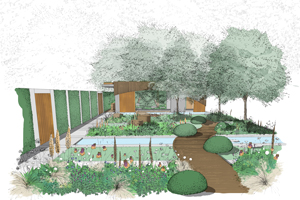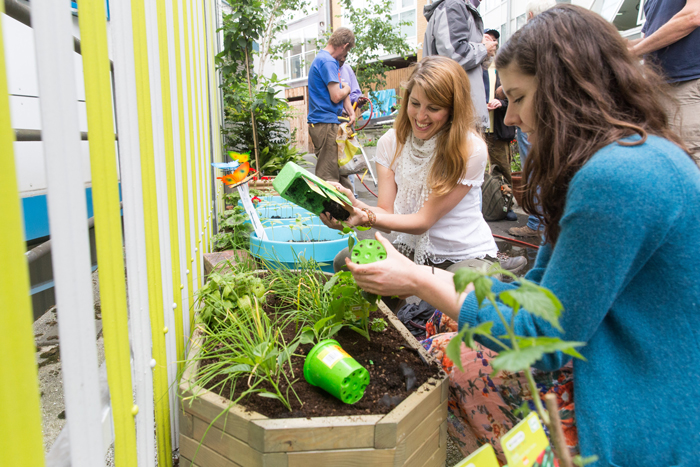Why gardening is key to friendlier neighbourhoods
Making friends with your neighbour is not always easy and traditions such as asking to borrow a cup of sugar are a thing of the past. It’s no surprise perhaps that a new survey (1) carried out for retailer Homebase shows that only 15% of us know our neighbours well enough to regularly socialize with them.
The survey questioned the nation about community life and found that gardens could be the key to friendlier neighbourhoods across Britain’s towns and cities, encouraging more people to talk to one another and helping friendships blossom.
Recent Government statistics (2) highlighted that Britons are less likely to know their neighbours than people anywhere else in Europe. However, more than 84% surveyed rate a sense of community as important and 66% believe this means being friendly with neighbours.
Jo Kenrick, Marketing Director at Homebase, which carried out the research said: “We see plenty of research that shows that people who live in friendly neighbourhoods are happier, but modern life means that often we simply don’t get the opportunity to get to know the people who live close to us. This is especially true in big cities.
“Gardening is something that people of all generations can get involved in at different levels. As our survey shows, community gardens – or even making the most of what’s outside your own back door – are not only wonderful for getting more children interested in gardening but they provide a place for people to meet and give everyone the opportunity to learn valuable gardening skills.
“In this social media age it’s wonderful to know that a traditional pastime such as gardening is having such a beneficial effect on community cohesion.
“Our Urban Retreat Garden at this year’s RHS Chelsea Flower Show is all about encouraging communities to come together and create a garden that everyone in the neighbourhood can enjoy.”
The Homebase findings support existing studies of community gardens that show how collective gardening can help bridge social barriers and bring communities together and the good news is that more and more are signing up across the country.
In the last six years in London along, 2,000 community food gardens have registered with City Growth, a food-growing network, while The Federation of City Farms and Community Gardens represents 1,000 community gardens across the UK.
Jeremy Iles, Chief Executive of the Federation of City Farms and Community Gardens said: “Community gardens can unite and enrich people of all ages and from all different cultures. They provide a way to bring communities closer together in a shared space, allowing people to interact through the experience of growing and nurturing plants together or simply enjoying a peaceful piece of nature. It’s something the whole neighbourhood can join in with and it is well-documented that community gardening improves well-being, encourages exercise and helps grow more understanding about the natural world.”
 The 2015 RHS Chelsea Flower Show garden, designed by Adam Frost, is inspired by the Bauhaus movement and work of one of its most famous proponents, Marcel Breur. ‘The Homebase Urban Retreat‘ celebrates the striking design principles of the early 20th century movement and will incorporate modernist materials such as concrete and corten steel. Adam describes the design as blending the structures of an urban environment with the softness of nature to show how green space can be successfully incorporated into our towns and cities.
The 2015 RHS Chelsea Flower Show garden, designed by Adam Frost, is inspired by the Bauhaus movement and work of one of its most famous proponents, Marcel Breur. ‘The Homebase Urban Retreat‘ celebrates the striking design principles of the early 20th century movement and will incorporate modernist materials such as concrete and corten steel. Adam describes the design as blending the structures of an urban environment with the softness of nature to show how green space can be successfully incorporated into our towns and cities.
Photo credit: © Homebase – Award winning community garden – Gibbon’s Rent, Southwark.
1 Research carried out for Homebase by Opinion Matter, sample 2,034 UK adults
2 http://www.ons.gov.uk/ons/dcp171766_363811.pdf


